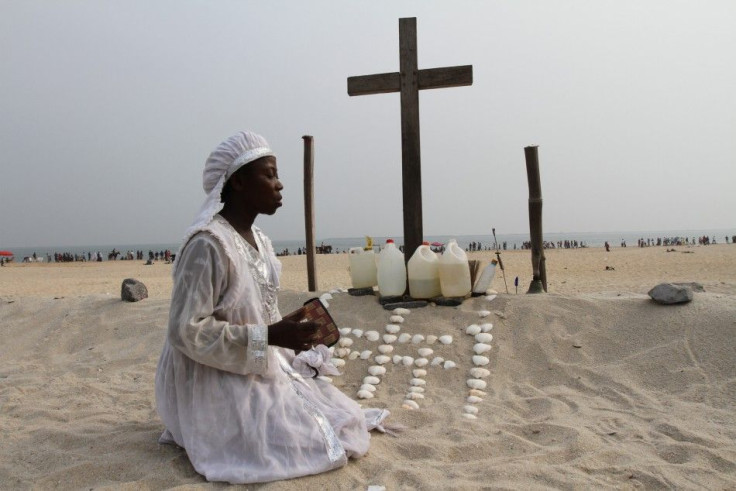Nigeria: 90,000 Displaced by Boko Haram as 'Religious War' Escalates

The ever-swelling wave of violence in Nigeria has yet to break, and a slew of recent attacks by Islamic militant group Boko Haram have sent tens of thousands of Nigerians fleeing from their homes.
In the city of Damaturu, the capital of the predominantly Muslim state of Yobe, about 90,000 people escaped the city following extreme violence last week.
We have at the moment an estimated 90,000 displaced people from the Damaturu violence, Ibrahim Farinloye, northeast coordinator for the National Emergency Management Agency (NEMA), told the Agence France Presse news agency.
Around 40,000 of this figure is from the Pompomari area, where the whole neighborhood has been deserted. Some of the displaced have lost their homes, while others just fled for their security, Farinloye added.
We advised the displaced against moving into any temporary camp for security reasons, therefore most of them are sheltering in the homes of friends and relatives in the city and neighboring villages.
This is not a new trend. Last summer, at a time when Boko Haram stepped up its rate of attacks, there were reports that entire villages had been abandoned by residents who fled for safety. Once abandoned, Boko Haram members reportedly patrolled these villages by motorcycle, intimidating anyone who tried to return home.
Boko Haram is an Islamic militant group bent on making Nigeria a Muslim state, using attacks and violence as its only tools. One of Boko Haram's most shocking and deadly attacks occurred on Christmas Day, when a number of churches were bombed, including the St Theresa Catholic church in a suburb of Abuja. Around 30 people died in that bombing alone.
President Goodluck Jonathan recently held talks with religious leaders on how to curb the ever-escalating violence. So far, Jonathan has chosen brute strength as the primary method of fighting Boko Haram, sending a joint military and police force into the north to battle the rebels head-on.
While this has lead to a number of arrests, it has done little to diminish the number of attacks. Additionally, the government forces' tactics have been questioned by northern civilians who have seen gunfights in public streets, state agents conducting house-to-house searches and alleged executions.
Religious leaders are hopeful that new, open dialogs will lead to a solution to the Boko Haram problem.
But despite the inter-religious talks, some fear that sectarian violence has already begun, with Christians retaliating against Muslims. On Wednesday, unidentified attackers threw a locally made low-capacity explosive at an Arabic school in the southern Delta state, police spokesman Charles Mouka told the AFP. The attack wounded six children and one adult.
It is unclear who was behind the attacks, but there are a number of established militant groups that already exist in the south, including the Movement for the Emancipation of the Niger Delta and the Niger Delta People's Volunteer Force.
However, these rebel factions are much more motivated by economics than religion and are vying primarily for control of Nigeria's lucrative oil pipelines. Additionally, the choice of target is unusual for the southern militants and both Christian and Muslim leaders fear that a religious war could be close at hand.
We fear that the situation may degenerate to a religious war and Nigeria may not be able to survive one. Once again, 'Enough is enough!' said Saidu Dogo, secretary general of northern provinces for the Christian Association of Nigeria.
We shall henceforth in the midst of these provocations and wanton destruction of innocent lives and property be compelled to make our own efforts and arrangements to protect the lives of innocent Christians and peace-loving citizens of this country.
The call for peace is coming from both sides and Muslim leaders have also been urging followers not to fall into a religious war.
I want to assure all Nigerians that there is no conflict between Muslims and Christians, between Islam and Christianity, Sultan of Sokoto Muhammad Sa'ad Abubakar told Nigerians after a meeting with Jonathan earlier this week.
“It’s a conflict between evil people and good people. The good people are more [numerous] than the evil ones, so the good people must come together to defeat the evil ones, and that is the message,” added Abubakar, who is considered the spiritual leader of Nigeria's 70 million Muslims.
© Copyright IBTimes 2025. All rights reserved.





















